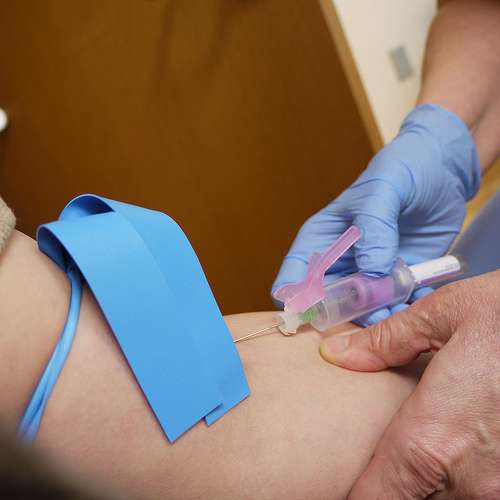Blood biomarkers aid in Alzheimer's battle

Local researchers are developing an effective low-cost screening tool to facilitate Alzheimer's disease (AD) diagnosis for the first time by analysing different combinations of proteins in blood.
ECU research fellow Dr Veer Gupta presented her ongoing investigation into protein biomarkers for progressive memory loss at the recent 30th international conference of Alzheimer's Disease International (ADI) in Perth.
Dr Gupta says she hopes to develop blood biomarker panels, which can replace current methods which include analysing difficult-to-access CSF (cerebrospinal fluid) and does away with the need for expensive neuroimaging to detect AD.
"We are working towards a more refined combination of [previously discovered] protein biomarkers that are validated in a longitudinal manner," she says.
Her research addresses several limitations that restrict the value of previous studies performed by others scientists, like the lack of sufficient sensitivity and reproducibility of protein detection outcomes, and the inability to test protein combinations to map disease progression.
For the first time, longitudinal changes in blood biomarker profiles, CSF and neuroimaging scans could be compared over time to test how well blood biomarker profiles reflected biochemical alterations in the brain due to disease progression.
According to Dr Gupta, the Australian Imaging, Biomarkers and Lifestyle (AIBL) cohort of 1,112 older Australians presented a unique study group for longitudinal AD biomarker screening.
AIBL participants were comprehensively tested for memory impairments at recruitment and classified as healthy (presymptomatic), or people with subjective memory complaints, mild cognitive impairments or AD.
The team found protein combinations that can differentiate between study participants who remained healthy over the three-year study period and those that transitioned into mild or severe cognitive impairment states.
"The biomarkers tested represent different biological pathways that can contribute to the disease," she says.
"They range from growth factors and cytokines to proteins from endocrine pathways."
The study's success relied on the use of a mesoscale discovery platform which measured various blood proteins quantities at the same time.
The team has been the first in WA to introduce this advanced technology to AD research.
Minute amounts of protein can be detected using electrochemiluminescence—light emission caused by specific electrochemical reactions in the blood samples.
Dr Gupta says this sensitive assay is capable of multiplex analysis in small blood samples and is frequently used in cancer and inflammation research.
Conference organiser and ADI executive director Marc Wortmann says: "the conference was a perfect place to exchange ideas, projects and good practices between Australian and international attendees, including the latest biomedical science, like improved tools for diagnosis."
More information: "Multiplex biomarkers in blood." Alzheimer's Research & Therapy 2013, 5:31 DOI: 10.1186/alzrt185


















